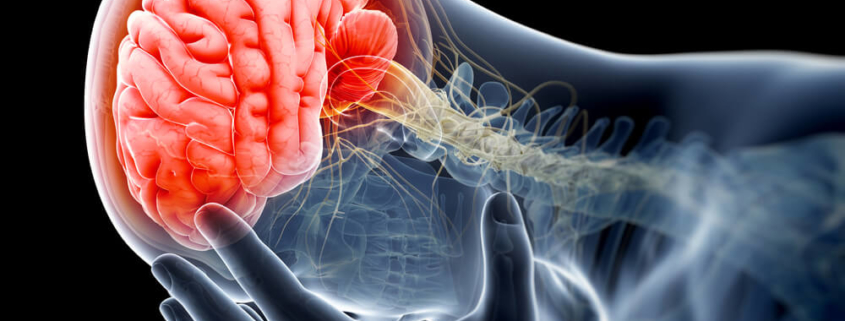5 Common Causes of Brain Injuries
Brain injuries are a major cause of death and disability in the United States. The Centers for Disease Control and Prevention (CDC) reports that traumatic brain injury (TBI) contributes to roughly 30% of all injury-related fatalities. The CDC report goes on to say that more than 150 people die from TBI every single day. In addition, over 2 million Americans seek emergency room treatment for TBI each year, and more than 5 million are living with a TBI-related disability.
Traumatic brain injuries can happen to anyone. The head is a very fragile area of the body, and even a seemingly minor incident can result in a severe head injury that affects the brain. These types of injuries can cause severe and lasting consequences, especially when they are not diagnosed and treated right away.
There are numerous ways a brain injury can occur. Here are five of the most common causes:
Falls
Approximately 40% of brain injuries in the U.S. are caused by falls. Everyone has fallen down multiple times in their lives, and most of the time, there are no lasting effects. However, when you fall hard and/or from a high elevation and hit your head, it can cause severe head injuries. This can happen due to slipping or tripping in a poorly maintained premises, at work, or any of a number of other places.
Falls can be especially dangerous for those who are most vulnerable, which include children, the elderly, and those who are disabled. Among those groups, the percentage of brain injuries related to falls is over 50%. This makes it especially critical for places like daycare centers, assisted living facilities, and nursing homes to be well-staffed and to have their staff adequately trained and able to ensure that those they are caring for do not suffer this type of injury.
Being Struck by an Object
Approximately 16% of traumatic brain injuries occur because the victim is struck on the head by a loose object. This type of injury is especially common on construction sites and other outdoor worksites, where heavy machinery is sometimes used recklessly, and loose objects are often floating around and hit workers in the head. This type of injury also occurs frequently in the military.
Motor Vehicle Accidents
Car accidents, truck accidents, motorcycle accidents, boating accidents, bicycle and pedestrian accidents, and other accidents involving collisions with motor vehicles account for almost 15% of all brain injuries. These types of accidents are often characterized by swift jerks to the head, causing whiplash and related injuries. Brain injuries can also occur when the head is thrown into the steering wheel, dashboard, or windshield.
Assaults
About 11% of brain injuries happen because of an assault. People getting in fights at a bar, burglaries gone bad, and domestic assaults are just a few examples of incidents that can lead to a severe head injury that affects the brain. The worst assault-related injuries tend to happen to defenseless children as young as babies and toddlers.
Other Causes
Brain injuries can happen for a number of other reasons. Examples include birth injuries, gunshot wounds, explosions, medical conditions such as a stroke, and contact sport collisions.
When Brain Injuries are Caused by Negligence
Some traumatic brain injuries occur because of unforeseeable accidents. Far too many, however, are the result of the careless or reckless actions of another party. When brain injuries occur because of another party’s negligence, injury victims who suffer damages deserve to be compensated.
Damages for traumatic brain injuries can be divided into three general categories:
• Economic: These are calculable and quantifiable damages the victim incurred. Economic damages may include medical expenses and loss of earnings (both present and future).
• Non-Economic: These are damages that are difficult to quantify, such as physical pain and suffering, emotional distress, and diminished quality of life.
• Punitive: These are damages meant to punish the responsible party and deter them from repeating the actions that led to the injury. Punitive damages are rare and usually awarded only in cases involving especially egregious conduct.
Brain injury cases can be complicated, and there are numerous factors that go into the success or failure of the case. For this reason, it is important to work with an experienced personal injury lawyer who has in-depth knowledge of the complexities of these types of cases. A strong traumatic brain injury attorney will be able to thoroughly assess your case and advise you on the best legal option to ensure you obtain appropriate relief.




